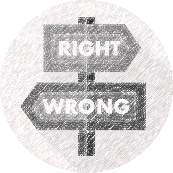Bioethics Digest
In this feature, our team provides you with an overview of the most recent publications in the field of bioethics, with a particular focus on contributions coming from (or having relevance for) Switzerland.
Buona lettura! Bonne lecture! Viel Spass beim Lesen! Enjoy your reading!
The editor: Andrea Martani
Twentieth Edition - September 2022
PUBLIC HEALTH ETHICS

“Towards a Governance Framework for Brain Data”
Collecting data about brain activity are increasingly easy to collect, and improving analysing capacities permit to decode mental processes and use such data for a variety of analytical purposes. Given that brain activity is so strictly connected with fundamental principle such as ‘freedom of thought’, novel ethical challenges have been arising and there is a growing need of governance frameworks for the use of brain data. The authors propose the first steps towards such a framework by: 1) highlighting the existing gaps in legal and ethical governance relevant for brain data processing; and 2) calling for modifications in hard law (such as identifying ‘brain data’ as a category of particularly sensitive data), ethical guidelines (such as requiring consent as an ethical requirement for brain data collection), responsible innovation principles and human rights approaches.
Ienca M, Fins JJ, Jox RJ, et al. Towards a Governance Framework for Brain Data. Neuroethics 15, 20 (2022). doi: 10.1007/s12152-022-09498-8
“In Search of a Mission: Artificial Intelligence in Clinical Ethics”
Should Artificial-Intelligence (AI) based systems that help with decisions in clinical ethics be developed? The authors tackle this question by reflecting on whether an AI-based clinical ethics support system conceptualised by other authors to help with ethically troubling decisions on the continuation or withdrawal of medical treatment would be useful. They comment that actually the most difficult decisions in that respect concern the assessment of the patient’s capacity, something that humans seem to be better geared at evaluating. Furthermore, they underline how an AI-based clinical ethics support system should take into consideration considerations about how to integrate it concretely into clinical routine from the very beginning of software development.
Biller-Andorno N, Ferrario A, Gloeckler S. In Search of a Mission: Artificial Intelligence in Clinical Ethics. The American Journal of Bioethics, (2022) 22:7, 23-25. doi: 10.1080/15265161.2022.2075055
CLINICAL ETHICS

“Decision‑making ethics in regards to life‑sustaining interventions: when physicians refer to what other patients decide”
References to what other patients do is an important social factor that impacts on healthcare related decisions. They can thus be considered nudges, since speaking about what other people decided or held correct indirectly influences the behaviour of current patients. The authors reflect on whether this kind of nudge is ethically acceptable by analysing how a sample of patients and doctors used references to other peoples’ decisions concerning cardio-pulmonary resuscitation (CPR). Analysing these conversations shows how clinicians use reference to the actions/preferences of other patients as a way to indirectly nudge the current patient towards a preferred course of action. The problematic aspects of this practice in relations to clinical ethics are then discussed.
Sterie AC, Jox RJ, Rubli Truchard E. Decision-making ethics in regards to life-sustaining interventions: when physicians refer to what other patients decide. BMC Med Ethics. 2022 Sep 2;23(1):91. doi: 10.1186/s12910-022-00828-2.
“How is physicians' implicit prejudice against the obese and mentally ill moderated by specialty and experience?”
Implicit biases towards certain patients features (e.g. race, skin colour, smoking status, obesity etc.) are a threat to the provision of equal standard of care. FitzGerald and colleagues investigate whether the type and amount of medical training has interacts with potential implicit biases against the obese and mentally ill. Their study involved more than 100 clinicians from the French speaking part of Switzerland. Results indicate that specializing in psychiatry (rather than experience) helps to have less implicit bias towards the mentally ill. Implicit biases against the obese remain, on the contrary, generally relevant, and the authors thus recommend to improve medical training to address this issue.
FitzGerald C et al. How is physicians' implicit prejudice against the obese and mentally ill moderated by specialty and experience?BMC Med Ethics. 2022 Aug 24;23(1):86. doi: 10.1186/s12910-022-00815-7.
THEORETICAL BIOETHICS

“Clinical Ethics Consultation in Chronic Illness: Challenging Epistemic Injustice Through Epistemic Modesty”
Chronic illnesses and their treatment represent an increasing share of the work within the healthcare system. But are healthcare professionals and clinical ethicists equipped to deal with the ethical dilemmas related to chronic patients? The authors include that the current focus of Clinical Ethics Consultations (CEC) on the biomedical paradigm and on a narrow conception of autonomy can generate epistemic injustice towards chronically ill patients. To avoid this, the lived experience of patients must be brought back to the centre, as well as the impact of the chronic illness on her agency. To do so, more training of clinicians and clinical ethicists should be accomplished, together with a de-medicalisation of CEC and the offer of ethics consultations beyond the clinical setting (e.g. after discharge).
Weidmann-Hügle T, Monteverde S. Clinical Ethics Consultation in Chronic Illness: Challenging Epistemic Injustice Through Epistemic Modesty. HEC Forum. 2022 Sep 7. doi: 10.1007/s10730-022-09494-8
Previous Editions
Nineteenth Edition - June/July 2022
Eighteenth Edition - May 2022
Seventeenth Edition- March 2022
Sixteenth Edition - 9 February 2022
Fifteenth Edition - 25 January 2022
Fourteenth Edition - 11 January 2022
Thirteenth Edition - 13 December 2021
Twelfth Edition - November 2021
Tenth Edition - 8 May 2021
Ninth Edition - 22 April 2021
Eighth Edition - 08 April 2021
Seventh Edition - 22 March 2021
Sixth Edition - 2 March 2021
Fifth Edition - 18 February 2021
Fourth Edition - 2 February 2021
Third Edition - 18 January 2021
Second Edition - 29 December 2020
First Edition - 14 December 2020
